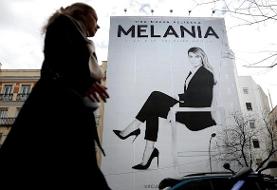Life or death for Iranian concerts? Up to Not Iranians but Ticketmaster

It may come as a surprise to you but life or death for the future of Iranian concerts (outside Iran) is decided NOT by Iranians but mainly by a non-Iranian company: Live Nation, world's largest event production and online ticket sales company. Here are the reasons (facts):
- An average Iranian concert outside Iran sells 30%-70% of the venue seats, the exact number depends on not only artist popularity and event timing but also on ticket prices. Concerts are expensive events to attend so most Iranians, affected by harsh economic conditions, resist paying high ticket prices.
- Many concert venues requires use of Ticketmaster as the main ticket sales outlet. Ticketmaster fees can be 15%-25% of ticket's face value, adding between $7-$15 to "consumer" price for each ticket. Many Iranians are not willing to pay $7-$15 for ticket processing fee. In other words, the patron may be willing to pay $80 for two tickets but not $100 (after Ticketmaster fees are added).
- Concerts often become profitable only if more than half (50%) of the seats are sold. Average profit for even "successful" Iranian concerts is less than 10% of ticket's face value - about half of ticketing fees charged by Ticketmaster.
It is therefore not surprising to see that most Iranian concerts face slow sales or become unprofitale. The bulk of money to be made, if any, often flows to Ticketmaster and the venue (many owned by Ticketmaster's parent company, Live Nation).
Live Nation Entertainment, which merged Ticketmaster with its business units in 2010 is the world's leading live entertainment and eCommerce company, serving over 200 million consumers annually through Ticketmaster and its production of over 20,000 shows annually for more than 2,000 artists globally.
Iranian concerts - even large ones with 6000 patrons - are relatively small in Live Nation's portfolio. Can the performer or promoter of a "tiny" Iranian concert go against the superpowerful Live Nation and "demand" lower ticketing fees? Probably not, because Ticketmaster fees follow standard formulae. Can the organizer or performer then release some seats to other online sales outlets like Kodoom.com with much lower processing fees (often around 6%)? Probably not easy due to Ticketmaster's contractual mandates.
But American musicians have in the past challenged Tikctemaster. The following is a real life lesson to be learned for Iranians who complain about high concert ticket prices. For the benefit of its fans, this American music band challenged the Ticketmaster system. Guess what? Their Summer 2012 concert tour is SOLD OUT. Their fans are now appreciating them:
The New York Times reports, in May, "about 50 fans and friends of the band String Cheese Incident took $20,000 in cash to the Greek Theater in Los Angeles to take a small stand against the system — in this case, Ticketmaster.
With money advanced by the band, each person had enough to buy eight tickets at $49.95 apiece for the group’s show in July. Once all tickets were in hand, almost 400 of them, they were carried back to String Cheese headquarters in Colorado and put on sale again through the group’s Web site — for $49.95.
String Cheese Incident, a jam band with a solid if under-the-radar following, wants to offer tickets to its whole summer tour without the service fees, now ubiquitous, charged by Ticketmaster and other vendors. To do that it is going through much more rigmarole than almost any group would bother with, but feels strongly that the effort is worthwhile. “It costs us money to sell the tickets,” Keith Moseley, the band’s bassist, said. “But we are going to eat that cost this summer in order to make a better deal for our fans and let them know how much we appreciate them.”

With the summer touring season starting, the band’s challenge to the entrenched ticket-sales system is a reminder of how ticketing may be the concert industry’s most charged issue, affecting artists, fans and all sides of the business.
For String Cheese Incident, the Greek Theater mission was a chance to save fans some money and also to stage a symbolic protest as part of a decade-long conflict with Ticketmaster. To Ticketmaster and others in the concert industry, the band wants to ignore valid contracts and deprive theaters and promoters of standard revenue sources.
String Cheese Incident has long sold tickets to its own shows, handling as much as half the sales. In 2003 the band sued Ticketmaster, accusing the company of abusing its market power by denying the group more than the 8 percent of tickets it customarily makes available to acts. A settlement let the band continue to handle tickets for five years, but the agreement expired in 2009, just as the band was starting to return from a hiatus."













































